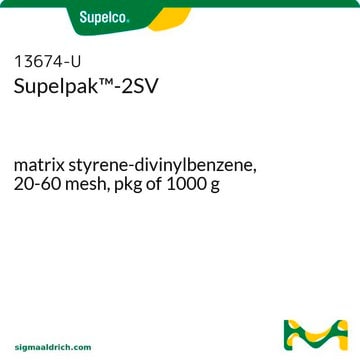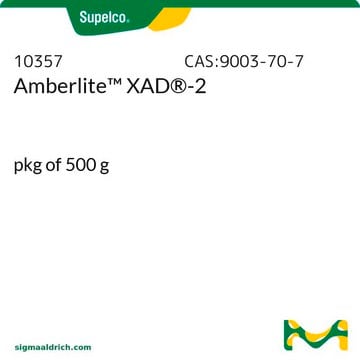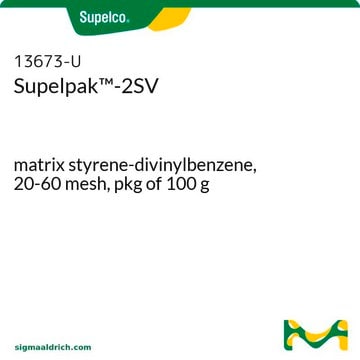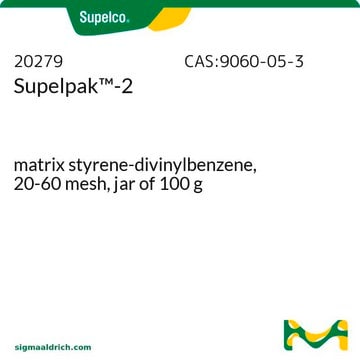13682-U
Supelpak™-2SV polymeric adsorbent
matrix styrene-divinylbenzene, 20-60 mesh, pkg of 250g
Synonym(s):
xad-2
About This Item
Recommended Products
product name
Supelpak™-2SV, matrix styrene-divinylbenzene, 20-60 mesh, pkg of 250 g
form
beads
Quality Level
packaging
pkg of 250 g
technique(s)
LPLC: suitable
NMR: suitable
surface area
~300 m2/g
matrix
styrene-divinylbenzene
matrix active group
polymer
particle size
20-60 mesh
pore size
~0.65 mL/g pore volume
90 Å mean pore size
application(s)
environmental
separation technique
reversed phase
Looking for similar products? Visit Product Comparison Guide
General description
Application
- Supelpak™-2SV resin was used as column packing material to extract sesquiterpenes.
- Supelpak™-2SV resin was used in glass column as packing material to capture limonene.
- Supelpak™-2SV resin was used as packing material to capture the off gas for NMR analysis.
Legal Information
Storage Class Code
11 - Combustible Solids
WGK
WGK 3
Flash Point(F)
Not applicable
Flash Point(C)
Not applicable
Choose from one of the most recent versions:
Certificates of Analysis (COA)
Don't see the Right Version?
If you require a particular version, you can look up a specific certificate by the Lot or Batch number.
Already Own This Product?
Find documentation for the products that you have recently purchased in the Document Library.
Our team of scientists has experience in all areas of research including Life Science, Material Science, Chemical Synthesis, Chromatography, Analytical and many others.
Contact Technical Service







![[β-Mercapto-β,β-cyclopentamethylenepropionyl1, O-Et-Tyr2, Val4, Arg8]-Vasopressin ≥97% (HPLC)](/deepweb/assets/sigmaaldrich/product/structures/211/868/9f767e8a-1d43-43eb-bf83-0af2c58c08a2/640/9f767e8a-1d43-43eb-bf83-0af2c58c08a2.png)